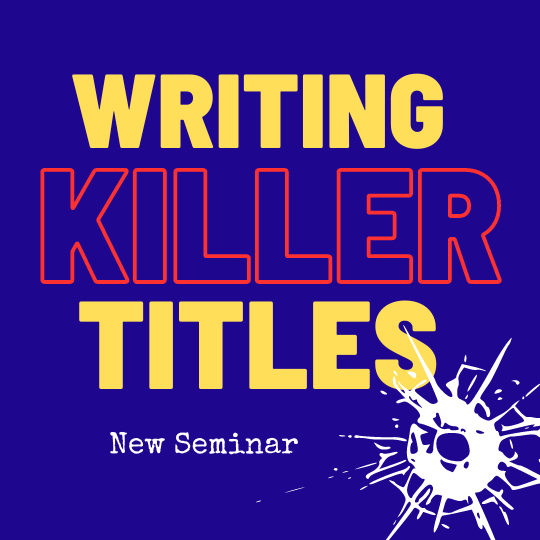Paul Whybrow
Full Member
We’ve discussed various aspects of chapters before:
https://colony.litopia.com/threads/chapter-heading-blindness.3749/#post-44804
https://colony.litopia.com/threads/what-do-we-think-about-chapters.5051/#post-60814
https://colony.litopia.com/threads/putting-chapters-in-the-right-place.3399/#post-41020
I’m neat and orderly in how I organise my Cornish Detective novels. I have numbered chapters with titles, and, if the chapters are more than 2,000 words long, I use section breaks to show what different characters are doing at the same time. It’s not just the ex-librarian in me that drives such orderliness, but also an awareness of who reads Crime genre books—females aged 45+—who appreciate consistency.
However, at the moment, I’m reading Terry Pratchett’s Night Watch, a 364 page hardback with no chapters at all, though double-spacing is used to denote section breaks. At first, I found this to be a bit disorientating when reading in bed, as I tend to read to the end of a chapter before turning the light out. The thought of writing without chapters intimidates me. Pratchett wrote most of his Discworld books in this way.
But, writing guru Janice Hardy finds dispensing with chapters liberating, at least for a first draft:
The Freedom of Writing Without Chapters
I kind of did this with my WIP, Kissing & Killing, which I began last summer, as I was in a foul mood, discombobulated by a host of technical gremlins in the first half of the year. I wanted to get something down, so wrote in disconnected chunks, scenes that I’ve been tying together ever since. It’s meant a lot of time-consuming jiggery-pokery, so I intend to be more organised for Book 7.
Various famous novels haven’t had chapters. Marilynne Robinson’s Gilead and Home, which are both slow-moving, but the lack of chapters encourages you to read on as the tension of the story increases. James Dickey (best known for Deliverance) wrote To the White Sea without chapters. The protagonist, a shot-down airman making his way through enemy territory goes into long passages of meditation about his life and nature and fighting which do away with the need for chapters. Cormac McCarthy eschewed chapters in The Road, using dots to separate sections.
How about you?
Do you use chapters?

Sidney Sheldon - Wikipedia
https://colony.litopia.com/threads/chapter-heading-blindness.3749/#post-44804
https://colony.litopia.com/threads/what-do-we-think-about-chapters.5051/#post-60814
https://colony.litopia.com/threads/putting-chapters-in-the-right-place.3399/#post-41020
I’m neat and orderly in how I organise my Cornish Detective novels. I have numbered chapters with titles, and, if the chapters are more than 2,000 words long, I use section breaks to show what different characters are doing at the same time. It’s not just the ex-librarian in me that drives such orderliness, but also an awareness of who reads Crime genre books—females aged 45+—who appreciate consistency.
However, at the moment, I’m reading Terry Pratchett’s Night Watch, a 364 page hardback with no chapters at all, though double-spacing is used to denote section breaks. At first, I found this to be a bit disorientating when reading in bed, as I tend to read to the end of a chapter before turning the light out. The thought of writing without chapters intimidates me. Pratchett wrote most of his Discworld books in this way.
But, writing guru Janice Hardy finds dispensing with chapters liberating, at least for a first draft:
The Freedom of Writing Without Chapters
I kind of did this with my WIP, Kissing & Killing, which I began last summer, as I was in a foul mood, discombobulated by a host of technical gremlins in the first half of the year. I wanted to get something down, so wrote in disconnected chunks, scenes that I’ve been tying together ever since. It’s meant a lot of time-consuming jiggery-pokery, so I intend to be more organised for Book 7.
Various famous novels haven’t had chapters. Marilynne Robinson’s Gilead and Home, which are both slow-moving, but the lack of chapters encourages you to read on as the tension of the story increases. James Dickey (best known for Deliverance) wrote To the White Sea without chapters. The protagonist, a shot-down airman making his way through enemy territory goes into long passages of meditation about his life and nature and fighting which do away with the need for chapters. Cormac McCarthy eschewed chapters in The Road, using dots to separate sections.
How about you?
Do you use chapters?

Sidney Sheldon - Wikipedia
Last edited:

 I shouldn't disparage teachers in tweed so much Rich, for to them you owe your ability if you can read and write now.
I shouldn't disparage teachers in tweed so much Rich, for to them you owe your ability if you can read and write now. planting stink bombs in their desks.
planting stink bombs in their desks.


